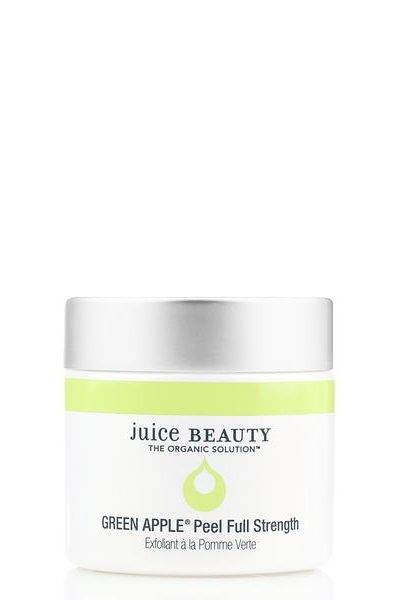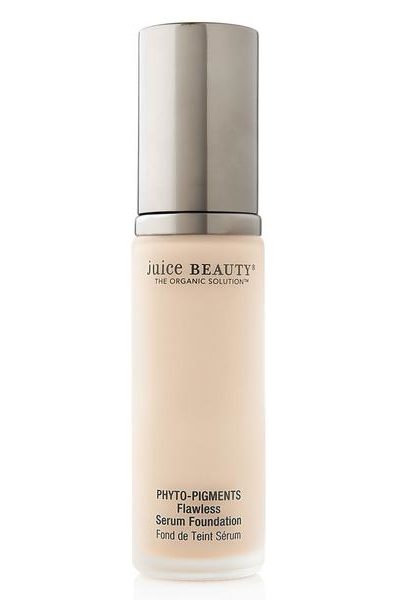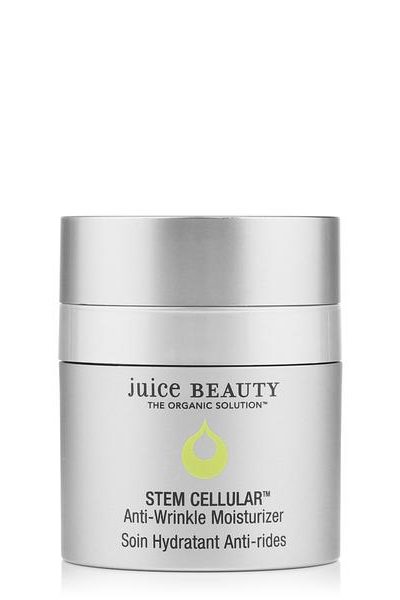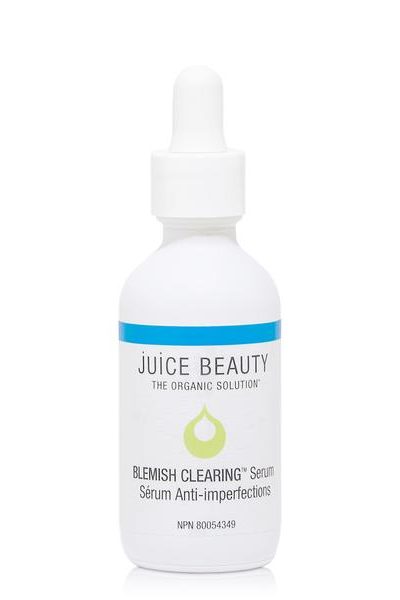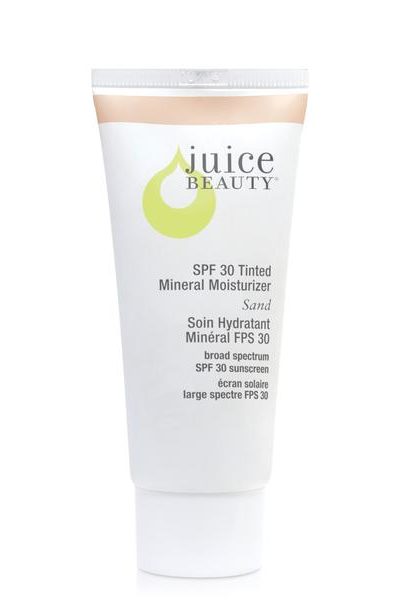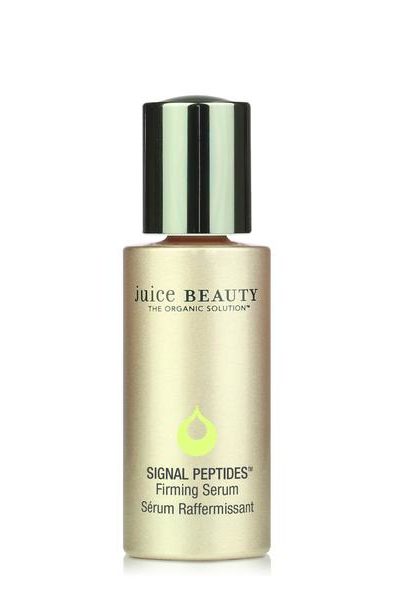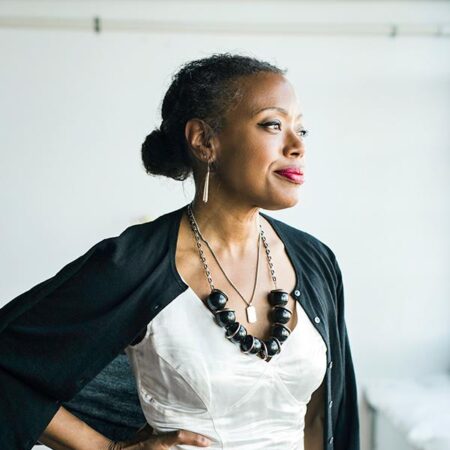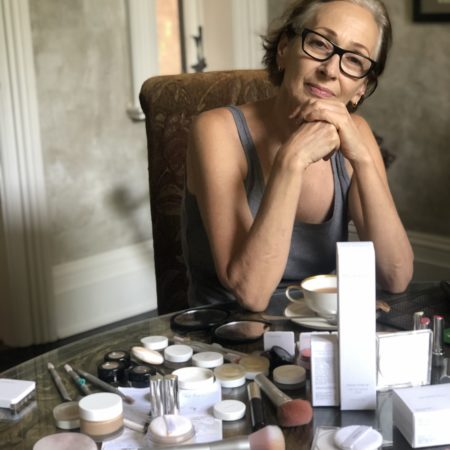A lifelong athlete who grew up in small-town Michigan, Karen Behnke founded her first company, Execu-Fit, at age 23 with the help of 17 credit cards. Eight years later, in 1991, she sold it to United Healthcare before joining the board of 24 Hour Fitness. Beauty wasn’t yet on her radar.
It was after becoming a new mom in her early 40s that Karen read a cosmetics label for the first time, and as she tallied up the harsh chemicals on the ingredient list, she decided she could do it better. Her idea was to use powerful organic botanical juices that would deliver the same benefits as traditional cosmetics brands—which is where Juice Beauty, which she founded in 2005, got its name. Fast forward to 2020 and Juice Beauty products are sold across the country in stores like Ulta, Whole Foods, Neiman Marcus, and Bloomingdales, to name a few. The skincare brand, one of the OGs of clean beauty, even broke into makeup by partnering with Gwyneth Paltrow, who loved Juice’s mission, from 2016 until 2018. But it wasn’t always easy. Here, Karen reveals how she went from a broke college grad to a giant in the clean beauty space.
Before Juice Beauty, can you tell me about the first company you founded?
Right out of college, in 1983, I moved to California and started GetFit Aerobics, and that morphed into my wellness company, originally called Execu-Fit Health Programs. I ended up getting the army contract for Northern California and taught five, six fitness classes a day to nurses and doctors and researchers and scientists and FBI and DEA. During that first couple of years, I realized fitness was just one piece of wellness, and that I should be looking at the entire wellness spectrum.
I sold Execu-Fit Health Programs to a huge Health Maintenance Organization [HMO], which today is United Healthcare. We were renamed PacifiCare Wellness Company, and we grew to deliver worksite wellness programs throughout the western United States. We would go into the worksite and do medical screenings, and also exercise testing to see how fit people were. Then, we would do monthly educational programs at the worksite, from fitness and wellness to stress and nutrition, and so on. Keep in mind this was the early ’80s through the late ’90s when that wasn’t really a thing. The whole goal was to provide a perk for employees and lower healthcare costs.
"A bank told me they would provide a line of credit if my husband would sign the loan."
How did you get that business off the ground?
Oh, you will love this. I really had no money. I had my aerobics company going. Basically, my roommate was a dancer and I was an athlete, and we pitched the army captain and came up with this crazy idea to do aerobics on the army base. We were paid class by class. But my wellness company was a different story. We bought vans and screening equipment. There was more and more capital investment, because we were selling professionally to big corporations. So to get that company started, back in the day, a bank actually told me after presenting my business plan that they would fund it and provide a line of credit if my husband would sign the loan. That was in the early 1980s when they could say things like that. The joke back then was that I needed to rent a husband; I was not married. So after all those problems, before the internet, I figured out that you could open multiple credit cards all in one day and get them approved. I opened 17 credit cards. I juggled $2,500 in 1980s money (closer to $6,000 today), per credit card. That’s how I financed my company, I played the credit card game. It was stressful.
For my second round of financing, I went to all my corporate clients and asked for 25 percent upfront on our annual services, and then we’d bill monthly. I was so scared. I was so young; I was 25. I thought they’d throw me out of the room. But we had such a unique service, they all said okay. Once I did that, I could really get rolling. That took me through the whole second phase of the company.
Then in 1987, I won the Woman Entrepreneur of the Year Award in San Francisco, presented by Diane Feinstein, who was then the Mayor of San Francisco and is now Senator of California. I gave a speech to 1,000 people and told some of these stories about how hard it was—how hard it still was. A woman came up to me, Wanda Alfaro from Bank of America’s biggest branch in San Francisco, and she said, “Get down to my office tomorrow; I will set up a line of credit for you.” That was it. I finally got a professional line of credit. It took a woman banker.
With Juice Beauty, obviously I had sold my wellness company to a major HMO. I was an executive at PacifiCare, and then I was on the board of 24 Fitness. Fast forward a hundred years later, and I provided the initial funding for Juice Beauty and I went to business friends for the back-up rounds—so, a different story.
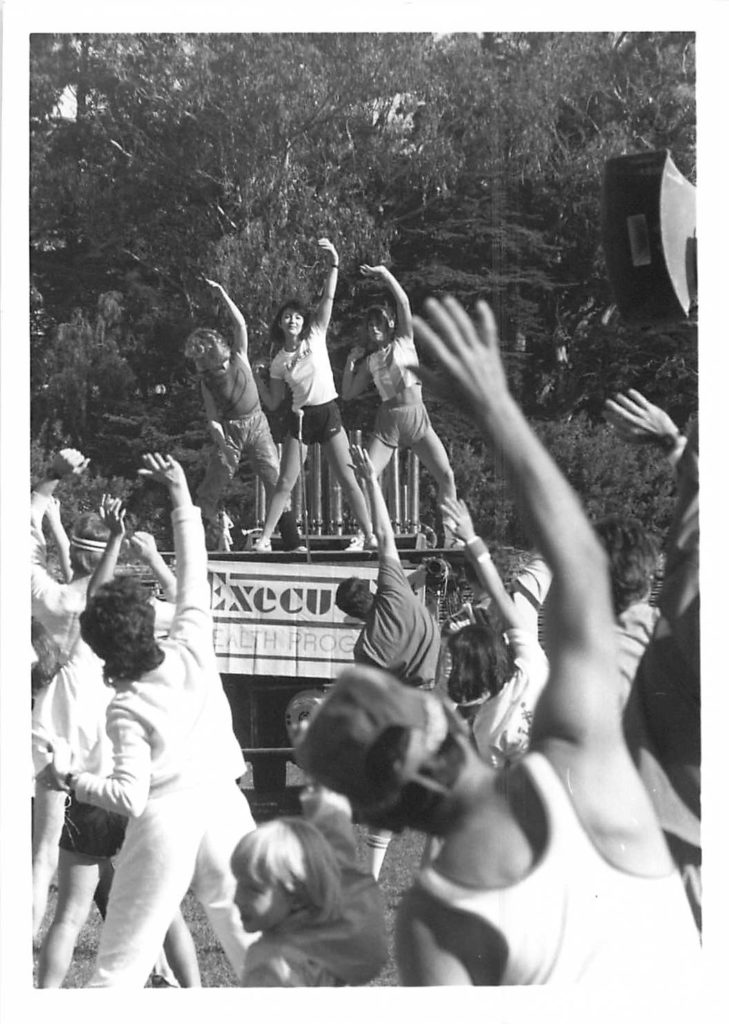
Did you ever think of giving up, even in the beginning?
No. If you are a diehard entrepreneur, you will find a way. It’s about being resourceful and persistent and passionate. It’s what drives crazy entrepreneurs. You just don’t take no for an answer.
How did clean beauty get on your radar?
At the time, in the early 2000s, I was in my early 40s and wasn’t working full-time. I had two young babies; my husband is a cardiologist and I was really interested in health, nutrition, fitness, and wellness, but I had never read a beauty product’s label. I kept researching how beauty products were made, and that’s when I had that a-ha moment. I thought, “Wow, I could do this better.”
I kept yelling out to my husband, as I’m wandering around the house, saying, “I can’t believe it.” Conventional brands start with all this butylene and propylene and petroleum glycols, and then they put some powerful chemicals in there so it works. Then the natural brands start with water and are diluted. So my concept was, well, what if we start with organic botanical juices, organic jojobas, grapeseed, etc., which are already jam-packed with vitamins and nutrients and rich in antioxidants. Then, we add rice peptides or anthocyanins from blueberries. That was my original concept, which still holds true today.
"I finally got a professional line of credit. It took a woman banker."
What products did you launch with at Juice Beauty?
The iconic product that put us on the map is the Green Apple Peel. I was going around to magazines in New York City, meeting editors and interested writers, but they’d all say, “I am sure it’s great for my health—but come on, it’s not really going to work.” So, my goal from day one was efficacy to meet and exceed conventional chemical brands with our formulation techniques.
I would leave the full-strength Green Apple Peel on the editors’ desks with these powerful fruit acids, and they’d inevitably call me back and write about us and say, “Holy moly, this stuff works.” We became known pretty quickly, for peels and serums. When you become known for products that really work, people either were glad that we were organic and we worked, or they didn’t even know we were organic and were just buying us because we worked. The Green Apple peel was so powerful. Not only does it still work, it is still a hero.
During those early years, we really went ingredient after ingredient. For every conventional chemical ingredient that could be harmful to humans or the planet or animals, we would find an alternative. We have the “Unworthy 30” on our website, which shows what we use instead of certain chemicals, but there’s a list of several thousand ingredients total we would never use. We started out with one chemist. Now, we have nine on contract and three in-house.
What was your come-to-market strategy? Did you want to position yourself a certain way?
On day one, my mantra was “authentically organic formulas, clinically validated results.” I was going after the clinical, conventional chemical brands. But I realized pretty quickly not a lot of people cared about authentically organic skincare in 2005. So, I flip-flopped that. To this day it’s flip-flopped, even though everything is “green” and “clean”. It’s more accepted, thank god, and people want more transparency. But I flipped it in year one or two so clinically validated was first. We started doing clinical trials in year four or five.
Shop Our Favorite Juice Beauty Products
Once you knew the products worked, how did you get them to a wider consumer audience?
Ulta Beauty, a mainstream Midwestern retailer, put us on the map. We’re in our 10th year with them. Before that, we were in Whole Foods and Pharmica, some wonderful retailers. But I stalked the then-CEO of Ulta; I was coming home to Michigan a lot, and they were in Illinois. I called his secretary so many times, she told me where he was having a breakfast meeting just to get rid of me. My pitch was, “Give me 10 minutes,” and he did. I slammed our products down on the table and said, “We’re going to do well by you.” He tried them, and he could not believe they were organic. He said, “Okay, I’ll give you 50 stores. I am going to spread them out all over the country, because I want to test how it’s going to work out.” We went around and educated the stores, and we took off. Pretty soon we went all-store with Ulta. That was a big win for us.
Today, new founders who are staring down a potential recession. Do you remember the scare in 2008?
We were still a baby. Fortunately, I had already sold my health and wellness company. I was on the board of 24 Hour Fitness, and that sold. I had worked my behind off for so many years. I was the lead investor for Juice Beauty, but I also had a really great group of investors at that time. It wasn’t friends and family, it was really business friends, so we were able to fund through those times.
I set criteria for investors that I stuck to. First, I had to know them and trust them. I had to have a deep business relationship with them. Number two, this money could not be their next mortgage payment; they had to have enough wealth that this wasn’t going to make or break them. I just didn’t want that stress. I was highly confident that we would return their money, but still, that was important. And third, they had to have some kind of mission and be values-driven. They had to support our values. That gets you through because if you have to hold a product up because of an organic ingredient supply or something, I knew that if my investors shared the same values they wouldn’t ever question it. So, our investors were people I had worked with; my only two bosses in my life, and people I’d done deals with. They invested to start the company, and we were able to get through 2008 using those original funds.
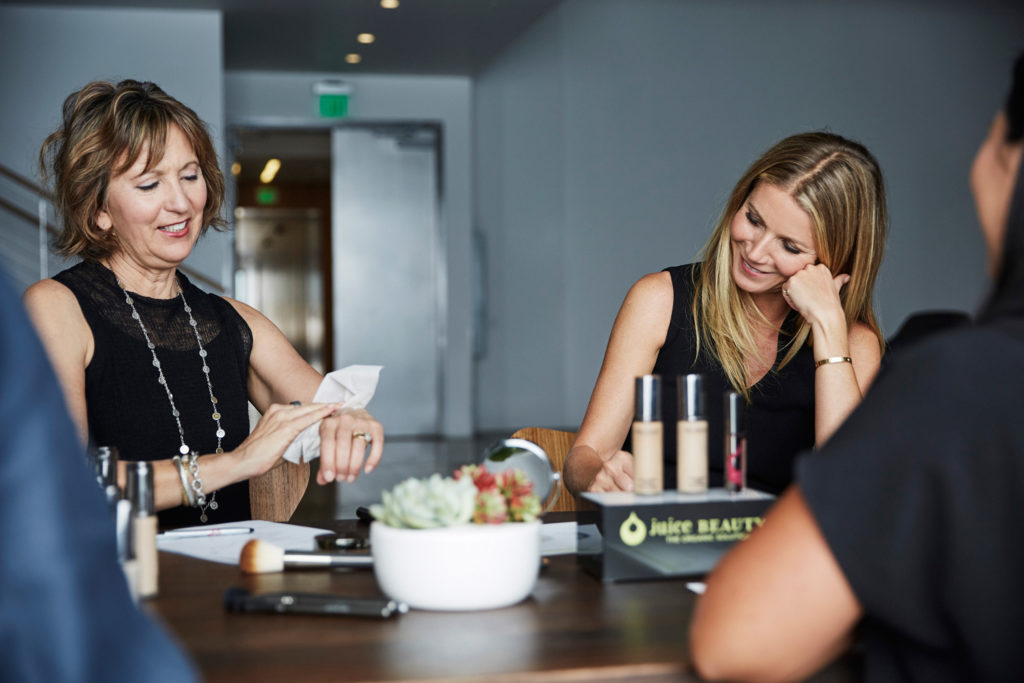
Were there any money management decisions you learned very early on that helped you?
In the early years, occasionally one of our operations people would say, “Oh, I trust this supplier, we’re going to put a deposit down.” And because we had good controls, meaning good financial oversight, I’d usually catch it, but sometimes I wouldn’t, and I’d think, are you kidding me? We put a deposit down somewhere in Asia and we don’t even know these people? Inevitably, you’d often get burned.
Having very strict financial controls is important. Some young entrepreneurs will say, “Oh, but I don’t want to offend someone.” This is your money! You owe it to your employees to make sure you’re really watching it. What if you can’t make payroll as a result?
How did you choose whom and when to hire? Did you hire in a strategic way early on?
If any entrepreneur says they hire strategically, they’re not telling the truth. Sometimes, you get impatient and you need to hire someone right away. We’ll be a team of 15 in July, and we’ve gone through two transitions. Early on, when it grew from just myself and one top manager to developing our first big management team, that was rough. Some people were really excited, others were not happy that we were going from a mom ‘n pop to an emerging growth company. Then, just last year, we looked at how we could expand our management team. It was tough because a couple of hires weren’t the right fit. But then, we got it right.
You have to be willing to take some bullets. Some people just aren’t the right fit for certain phases of the company. There were people who were awesome for us in the beginning who would never want to work for us now because it’s just not their thing. There are some people who work for us now, who would have never wanted to work for us in the first two, three years, but they are amazing at this stage. Then, there are other people who adapt to every stage.
"I set criteria for investors that I stuck to ... they had to have some kind of mission and be values-driven."
When employees are looking to you for leadership, how do you keep your cool, especially through stressful times?
It really helps to have a top lieutenant or another top person at the company who can help you talk through things. My Head of Operations now is that. As an entrepreneur, you’re thinking about a million things—all the people at your company, all the products, and everything. So it’s good if that person can help you decipher what’s going on with employees, and give you a different perspective, so that you can be sensitive to everyone’s needs.
What kind of advice would you have for founders who are building these companies in such uncertain times now?
If you are passionate about something, it will get you through the ups and downs. When you are building a business, there are obstacles every step of the way. You have to have the persistence and fortitude to overcome those obstacles. Passion is what really gets you through because you never think about stopping.
A lot of people come to me and say, “How do you raise money?” My advice is always put your own money in first. It doesn’t matter whether you have $1,000 or a million dollars, put your own money in first. If you don’t show your belief through that investment, no one is going to put their money behind you either. Surround yourself with the world’s best people, especially investors, because that is where a lot of people run into problems. Whenever the going gets tough, you want support. You don’t want more stress.
Lastly, pick your romantic partner well. Because living with an entrepreneur is challenging—it’s fun, but it’s interesting, and you need someone who likes that sort of go-go-go.
What’s next for Juice Beauty?
I really want to take it to the next level. My husband and I bought a farm in Healdsburg, California about a year and a half ago, which we leased back to Juice Beauty. It’s 20 acres, we are growing grapes and olives there, so it’s a vineyard and an olive grove. Our goal first and foremost is brand immersion for our employees, researchers, press, and social media. In about two years, we’ll be sourcing the highest antioxidant level grapes and olives from our own farm. In the meantime, we’ve planted a lot of our featured trees and flowers so people can see what it really is that we use—like our aloe, our evening primrose. We want you to feel like you’ve jumped inside a Juice Beauty bottle.
*This interview has been edited for length and clarity

